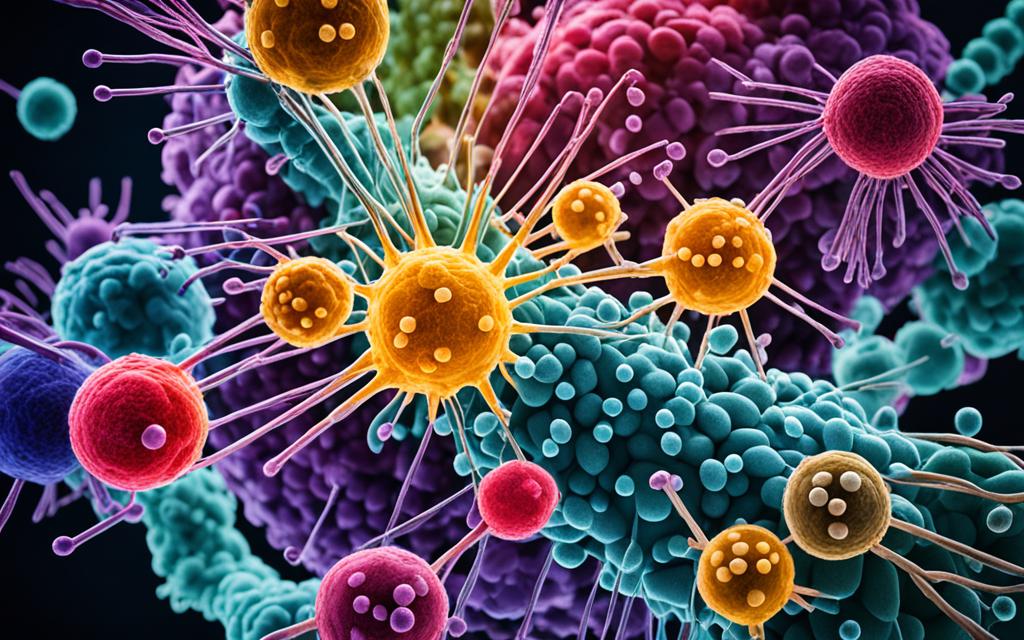Immunoglobulin A (IgA) is a crucial antibody that plays a vital role in defending your body against pathogens and maintaining your overall immune health. As the most abundant antibody in your body, IgA is primarily found in your mucous membranes, such as those lining your respiratory, gastrointestinal, and urogenital tracts. This strategic placement allows IgA to act as the first line of defense, neutralizing harmful microbes and toxins before they can cause infection.
What is Immunoglobulin A?
Immunoglobulin A (IgA) is one of the five main classes of antibodies produced by your body’s immune system. Unlike other antibodies, such as IgG and IgM, which primarily circulate in your bloodstream, IgA is primarily found in your mucous membranes. This strategic placement allows IgA to play a critical role in protecting you against pathogens that try to enter your body through your nose, mouth, and other mucosal surfaces.
| Function of Immunoglobulin A (IgA) | Production and Importance of IgA |
|---|---|
| IgA is responsible for neutralizing harmful microbes and toxins before they can cause infection. It acts as the first line of defense against pathogens that try to enter the body through the mucous membranes. | Your body produces two main forms of IgA: serum IgA, which circulates in your bloodstream, and secretory IgA (sIgA), which is found in your mucous membranes. sIgA is the predominant form and is responsible for the majority of IgA’s protective functions. |
Production and Importance of Immunoglobulin A
Your body produces two main forms of immunoglobulin A (IgA): serum IgA, which circulates in your bloodstream, and secretory IgA (sIgA), which is found in your mucous membranes. The production and importance of iga lies in the fact that sIgA is the predominant form and is responsible for the majority of IgA’s protective functions.
Serum IgA helps regulate your immune system’s response, while sIgA acts as the first line of defense against pathogens that try to enter your body through your mucous membranes. This strategic placement of sIgA in your saliva, tears, colostrum, and other mucosal secretions allows it to neutralize harmful microbes and toxins before they can cause infection.
The function of immunoglobulin a (iga) is crucial for maintaining your overall immune health. IgA’s ability to bind to and neutralize antigens, as well as its role in regulating the immune response, make it an essential component of your body’s defense system.
Secretory IgA: The First Line of Defense
Secretory IgA (sIgA), the predominant form of immunoglobulin A (IgA), plays a crucial role in protecting your body’s mucous membranes. This antibody is found in abundance in your saliva, tears, colostrum (the first breast milk), and other mucosal secretions. As the first line of defense, sIgA acts as a barrier, neutralizing harmful pathogens before they can enter your body through your nose, mouth, and other mucosal surfaces.
The strategic placement of sIgA in your mucous membranes allows it to intercept and bind to various microorganisms, including bacteria, viruses, and toxins, preventing them from penetrating deeper into your body and causing infection. This function of immunoglobulin A (IgA) is essential for maintaining your overall immune health and protecting you from a wide range of illnesses.
In addition to its pathogen-neutralizing capabilities, secretory IgA also plays a role in modulating your immune responses, helping to maintain a healthy balance between your body’s defensive mechanisms and the beneficial microbes that inhabit your mucous membranes. This delicate balance is crucial for supporting your immune system and preventing the development of inflammatory or autoimmune conditions.
Common IgA Deficiencies and Disorders
While immunoglobulin A (IgA) is crucial for your immune health, some individuals may experience IgA deficiencies or related disorders. The most common type of IgA deficiency is selective IgA deficiency, which is characterized by a lack of serum IgA levels while other antibody levels remain normal.
In addition to selective IgA deficiency, there are other IgA-related disorders that can affect your overall health and well-being. These include common variable immunodeficiency (CVID), which involves a reduction in multiple antibody types, and IgA nephropathy, a kidney disorder caused by the deposition of IgA complexes.
Proper testing for IgA levels is essential for diagnosing these conditions. Your healthcare provider may order a blood test to measure your serum IgA levels, as well as other immunoglobulin types, to determine if you have an IgA deficiency or related disorder. Early detection and appropriate management are crucial for maintaining your immune function and preventing complications.
| Common IgA Deficiencies and Disorders | Description |
|---|---|
| Selective IgA Deficiency | Characterized by a lack of serum IgA levels while other antibody levels remain normal. |
| Common Variable Immunodeficiency (CVID) | Involves a reduction in multiple antibody types, including IgA, IgG, and IgM. |
| IgA Nephropathy | A kidney disorder caused by the deposition of IgA complexes, leading to inflammation and damage. |
It’s important to work closely with your healthcare provider to understand your IgA levels and any potential deficiencies or related disorders. Prompt diagnosis and appropriate management can help you maintain a strong and healthy immune system.
Boosting IgA Levels Naturally
While IgA deficiencies can be managed with medical interventions, there are also natural ways to support and boost your IgA levels. One of the most effective methods is to ensure you maintain a healthy gut microbiome. The gut is a crucial site for IgA production, and a balanced gut flora can help increase your secretory IgA (sIgA) levels. Consuming probiotic-rich foods, such as yogurt, kefir, and fermented vegetables, can help promote a thriving gut ecosystem.
In addition to gut health, your diet plays a significant role in IgA production. Incorporating nutrient-dense foods rich in vitamins A, C, and E, as well as zinc and selenium, can help enhance your IgA levels. Examples include citrus fruits, bell peppers, leafy greens, nuts, and seeds. Staying hydrated and getting enough sleep are also important for maintaining optimal IgA function.
As for testing for IgA levels, your healthcare provider can order a simple blood test to assess your serum IgA levels. This information can help identify any deficiencies and guide the development of a personalized plan to boost your IgA levels through lifestyle and dietary modifications. Additionally, ongoing advances in IgA research continue to uncover new insights into the role of this vital antibody in supporting overall immune health.










